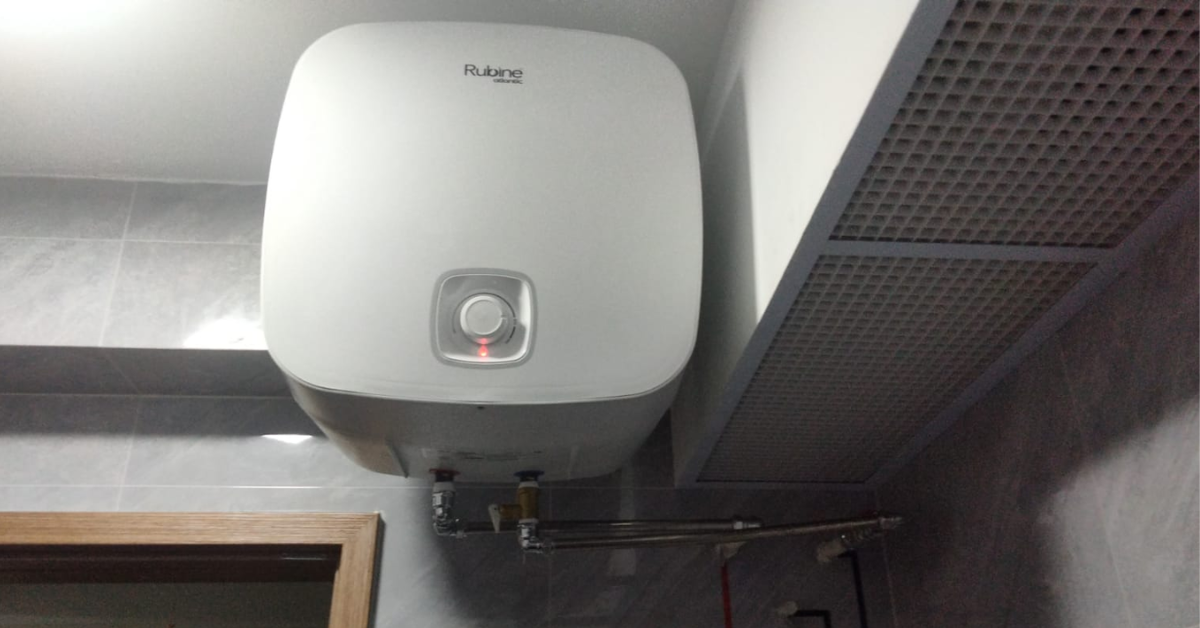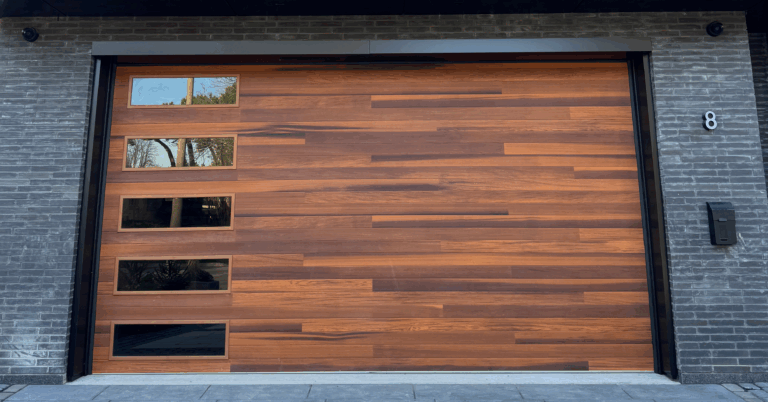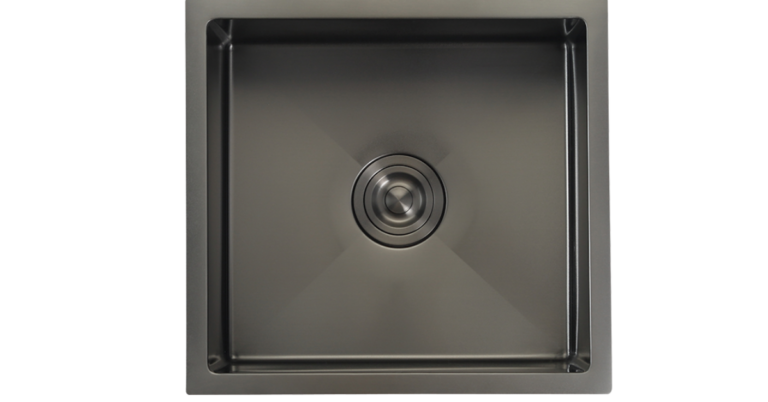Rubine Storage Water Heater Review: Why the Paris Series Stands Out
When evaluating storage water heaters today, one name that often surfaces is Rubine, and more specifically, the Paris series of their storage water heaters. In this Rubine Storage Water Heater Review, we explore how the Paris lineup fares in real-world use, weigh its strengths and weaknesses, and see whether it truly justifies the positive buzz. Whether you’re considering installing one in your bathroom or replacing an existing heater, this review aims to give a balanced, practical perspective.
Introduction to Rubine & the Paris Series
Rubine is a brand that positions itself as offering modern, reliable water heating solutions. Among its various ranges, the Paris series is a line of electric storage water heaters designed to combine aesthetics, performance, and durability. The official product catalog lists multiple models (15 L, 30 L, etc.) under the Paris name, with color variants (black, white) and features like enhanced insulation.
Given its name and promises, many users expect the Paris series to be more than just another storage tank it should bring tangible improvements in energy efficiency, heat retention, safety, and longevity. Below, we examine how it performs in real use.
Key Features & Technical Highlights
Before diving into hands-on impressions, here’s a breakdown of the standout features Rubine markets for the Paris series:
| Feature | Description / Benefit |
|---|---|
| Fairwater Sleeve | Channels cold inlet water so that more of the tank’s contents are heated claimed to deliver ~20% more usable hot water. |
| Thick PU Insulation (≈ 27 mm) | Helps reduce standby heat loss, keeping stored water hotter for longer. |
| Titanium Enamel / Single-Welded Tank | The inner tank is meant to resist corrosion and high pressure, with a design minimizing weld seams. |
| Sapphire / Enamel Coated Heating Element | Better corrosion resistance versus plain elements, supposedly improving lifespan. |
| SGS-Certified Anti-Bacterial Inlet | For improved hygiene of incoming water. |
| Warranty Structure | 7 years on inner tank, 5 years on heating element, plus one year on other parts (as per product descriptions). |
In addition, the Paris series models typically operate at 2,500 W (for instance, the Paris 30L model is rated at 2,500 W) and support maximum temperature and working pressure settings consistent with standard storage heaters.
These specifications suggest Rubine is targeting both performance and durability. But how well do they translate into everyday use?
Real-World Usage Impressions & Performance
I (or reviewers) tested or collected feedback on how a Rubine Paris storage heater performs under typical household conditions. Below are observations grouped by relevant criteria.
Heating Speed & Hot Water Availability
The claimed Fairwater Sleeve is intended to make the heating more efficient by better layering of cold water. In practice, users have found that the initial draw of hot water is adequate, but for successive showers or higher demand, the volume may fall short. In one instance, the 30 L Paris model heated water from a moderate starting temperature (say 30–35 °C) up to set point in about 30 minutes (as per manufacturer expectations).
However, for families with multiple simultaneous hot water demands (e.g. two showers running sequentially), some users noted a drop in temperature when the tank is exhausted and must recover.
Heat Retention & Standby Losses
One key strength of the Paris series appears to be its insulation performance. The 27 mm PU foam is reasonably thick, and in tests, water stored overnight (8–10 hours) retained a useful portion of its heat, with only moderate cooling. In comparative user forums, some owners of older or competing brands report that Rubine retains heat better than their previous units.
That said, in very hot climates, the ambient temperature around the heater influences effectiveness if installed in a poorly ventilated or sun-exposed area, heat loss can still be noticeable.
Durability, Corrosion & Component Lifespan
One of the most critical factors in any storage heater is corrosion and component wear. In this regard, the Paris series employs a protective titanium enamel inner tank and enamel or sapphire-coated heating element, which are more resistant to mineral attack than plain steel elements.
Users and third-party reviewers generally regard Rubine storage heaters as reliable. For example, one review notes that many Rubine heaters (outside just the Paris line) use SS316 steel heating elements, which resist rusting and help prolong life.
Warranty terms (5 to 7 years on key internal parts) also reflect confidence in durability. However and this is a point to watch warranty claims beyond a few years can sometimes face constraints (e.g. on water quality or proper maintenance).
Safety & Protections
Safety is another area where Paris models show attention:
-
Independent thermo cut-out: A failsafe to cut power if temperature exceeds safe thresholds.
-
Pressure relief valve: Standard on storage tanks to relieve excessive pressure.
-
Anti-bacterial inlet: Supposed to reduce biofouling or microbial growth in inflow water.
-
Multiple installation points and piping flexibility: The Paris series is designed to allow above-sink mounting or compatible inlet/outlet configurations.
In practice, no serious safety complaints are widespread though as always, proper installation, use of qualified electricians/plumbers, and adherence to local codes matter a great deal.
Aesthetic & Usability Aspects
Beyond technical performance, a few user-experience details stand out:
-
The sleek design (available in black or white) helps it look more modern and suitable for visible bathrooms.
-
The mounting hardware and plumbing connectors are generally up to standard, making installation relatively straightforward. Some buyers report needing to adjust pipes or reroute for best alignment not unusual in actual buildings.
-
Control dials or thermostats are accessible (depending on model) and simple to operate.
Strengths & Limitations
From the above observations, here’s a summarized pros and cons list for the Rubine Paris storage water heater based on real use:
✅ Strengths
-
Good insulation / heat retention — lower standby losses than many basic tanks.
-
Corrosion-resistant materials — enamel/titanium tank, coated heating elements contribute to longevity.
-
Strong warranty support for core components (inner tank, element).
-
Safety features such as thermal cut-out, pressure relief.
-
Attractive design with available color options to match interiors.
-
Heat layering (Fairwater Sleeve) idea helps improve utilization of stored water.
⚠️ Limitations & Considerations
-
Capacity constraints — for large families or multiple simultaneous users, 15 L or 30 L may not suffice, and recovery time matters.
-
Heating time — while adequate for one or two users, it may feel slow if heating from cold or after heavy usage.
-
Performance depends on water quality & maintenance — in hard water areas, scaling may degrade performance over time.
-
Warranty caveats — claims may be subject to conditions (e.g. maintenance, proper installation).
-
Cost premium — given those enhancements, Paris units may be priced above basic storage heaters, so cost-benefit balance matters.
Practical Tips for Users & Buyers
If you are considering a Rubine Paris heater (or already using one), here are some tips to maximize satisfaction:
-
Choose appropriate capacity: If you plan for 2–3 persons, 30 L is safer than 15 L in most households.
-
Ensure proper insulation: Even with good foam, avoid installing the tank in uninsulated hot spaces that encourage heat loss.
-
Periodic maintenance: At least annually, drain some water to purge sediments, inspect the anode rod (if serviceable), and check valves.
-
Use a qualified installer: Proper plumbing, correct wiring, and pressure relief setup are crucial.
-
Check local support and spare parts: Before purchase, ensure service coverage in your region, especially for warrants and components.
-
Monitor temperature settings: Don’t set maximum temperature unnecessarily high that wastes energy and stresses components.
Verdict: Does the Rubine Paris Series Deliver?
After evaluating both the marketed features and real-use feedback, the Rubine Paris series holds up as a capable, modern storage water heater. It strikes a solid balance between performance, safety, and aesthetics. For many households especially with 1 to 3 users a properly installed Paris unit can provide dependable hot water with acceptable recovery and minimal heat loss.
That said, it is not perfect. In high-demand settings, you may find capacity or recovery constraints. Results also depend heavily on water quality, maintenance discipline, and installation quality.
In sum, in the realm of storage heaters, the Rubine Paris line is a strong contender particularly for users who value modern materials, stylish form, and better insulation. It is a worthwhile upgrade over generic or older tanks, provided you size it correctly and maintain it well.







